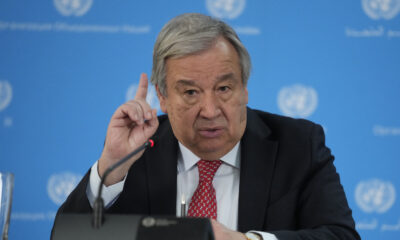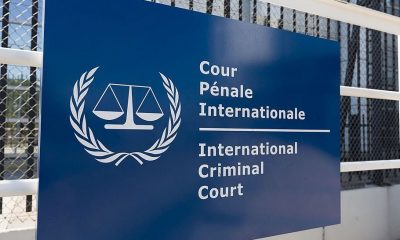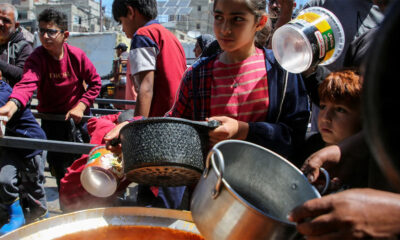International
UN Security Council backs US Israel-Gaza ceasefire plan
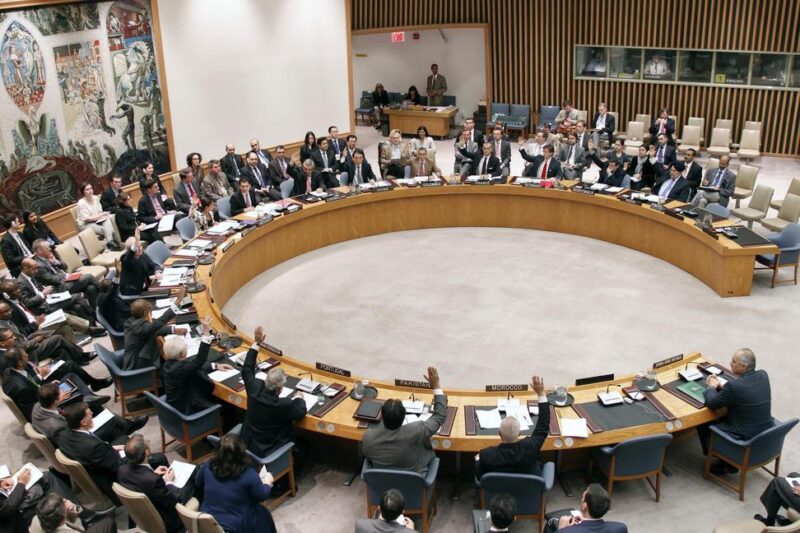
UN Security Council backs US Israel-Gaza ceasefire plan
The United Nations Security Council has voted to support a US-proposed Israel-Gaza ceasefire plan.
The proposal sets out conditions for a “full and complete ceasefire”, the release of hostages held by Hamas, the return of dead hostages’ remains and the exchange of Palestinian prisoners.
Fourteen of the 15 Security Council members voted in favour of the US-drafted resolution. Russia abstained.
The resolution states that Israel has accepted the ceasefire proposal, and urges Hamas to agree to it too.
It means the Security Council joins a number of governments, as well as the G7 group of the world’s richest nations, in backing the three-part plan that was unveiled by President Joe Biden on 31 May. Mr Biden described it then as an Israeli ceasefire proposal.
The vote is likely to increase pressure on both sides to respond positively to the plan with a view to ending the conflict. It also came shortly after US Secretary of State Antony Blinken met with foreign leaders, including Israeli Prime Minister Benjamin Netanyahu in an attempt to build support for the peace deal.
Just hours before the UN vote, Mr Blinken said his message to leaders in the region was: “If you want a ceasefire, press Hamas to say yes.”
READ ALSO:
- Northern group urges CBN to clean up Emefiele’s mess
- Katsina govt confirms gunmen killed 25 in village raid
- Military knocks Amnesty International over human rights violation comments
The group has previously said it supports parts of the plan, and it released a statement on Monday “welcoming” the Security Council resolution. Hamas is likely to demand guarantees the plan would lead to a permanent ceasefire and full Israeli withdrawal from the Gaza Strip.
Its political leadership in Doha has yet to formally respond to the proposal, according to US and Israeli officials.
The proposal would end with a major reconstruction plan for Gaza, which has been largely destroyed in the conflict.
The first phase concerns a hostage-prisoner swap as well as a short-term ceasefire.
The second phase includes a “permanent end to hostilities”, as well as a full withdrawal of Israeli forces from Gaza, according to a text of the US draft resolution.
The third phase focuses on the enclave’s long-term outlook, and it would start a multi-year reconstruction plan for Gaza.
Monday’s resolution comes 10 days after President Biden said the Israelis had agreed to the plan. But Mr Netanyahu has not yet endorsed the US proposal.
While Mr Biden presented the peace initiative as an Israeli one, the US is also aware Israel’s own fractious ruling coalition is approaching the plan with reluctance. This extends to outright opposition by some far-right ministers who are threatening to trigger a collapse of the government if the deal progresses.
The resignation of former general Benny Gantz from the war cabinet on Sunday has deepened that sense of instability.
READ ALSO:
- Two women beat man to death for refusing to have threesome with them
- Naira drops to N1,490/$ parallel market
- Hoodlums steal Sallah ram in Abuja
President Biden’s account on X, formerly Twitter, noted the passage of the resolution. “Hamas says it wants a ceasefire,” the post said. “This deal is an opportunity to prove they mean it.”
Linda Thomas-Greenfield, the US Ambassador to the UN, said: “Today we voted for peace”.
UK Ambassador Barbara Woodward described the situation in Gaza as “catastrophic”, adding that the “suffering has gone on for far too long”.
“We call upon the parties to seize this opportunity and move towards lasting peace which guarantees security and stability for both the Israeli and Palestinian people,” Ms Woodward said.
UK Foreign Secretary David Cameron also welcomed the resolution.
On 25 March, the UN Security Council passed a resolution calling for a ceasefire.
While the US had previously vetoed similar measures, it did not veto the March resolution. Mr Netanyahu said at the time that the US had “abandoned” its prior position linking a ceasefire to the release of hostages.
The conflict began when Hamas attacked southern Israel on 7 October, killing about 1,200 people and taking some 251 people hostage.
The Hamas-run health ministry says the death toll in Gaza has surpassed 37,000 since Israel responded to its attack.
UN Security Council backs US Israel-Gaza ceasefire plan
BBC
International
Israeli Airstrikes Kill 12 in Gaza as Violence Persists Despite Ceasefire
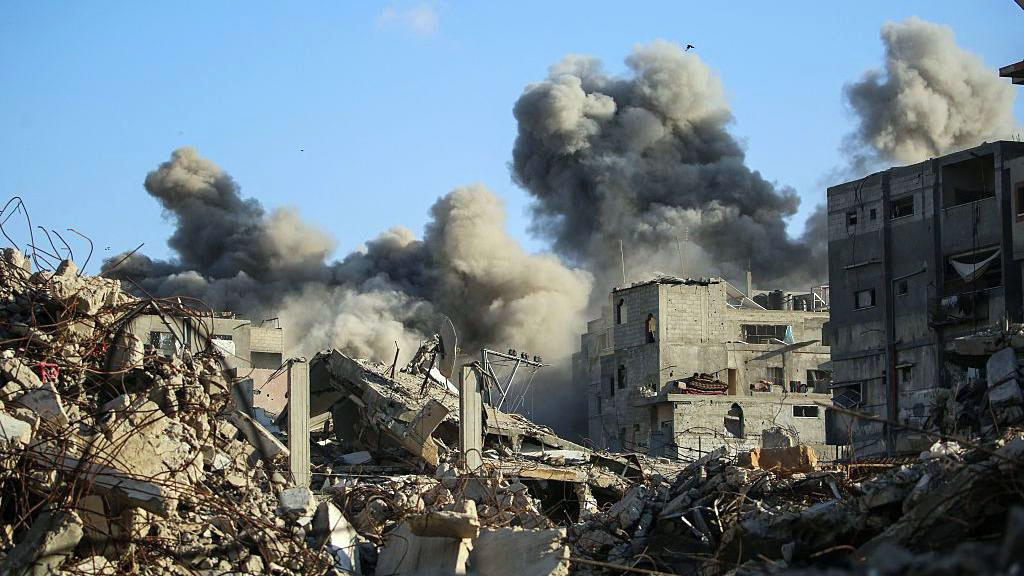
Israeli Airstrikes Kill 12 in Gaza as Violence Persists Despite Ceasefire
At least 12 Palestinians have been killed in Israeli airstrikes across the Gaza Strip, the territory’s civil defence agency reported on Sunday, marking one of the deadliest days since a fragile ceasefire was implemented. The strikes hit multiple areas, including Jabalia refugee camp in northern Gaza and the southern city of Khan Younis, leaving several others injured.
The Gaza Civil Defence, responsible for rescue and emergency operations under Hamas, said one airstrike struck a tent sheltering displaced civilians in Jabalia, killing at least five people and wounding others. Another strike in Khan Younis also claimed five lives, while additional shelling in Beit Lahia and western Gaza City caused further casualties. Local authorities said most victims were civilians, including families displaced by previous attacks.
READ ALSO:
- FBI Probe Continues as Ex‑Church Minister Who Confessed to Child Abuse Remains Free
- Presidency Dismisses El-Rufai’s Thallium Claim as Diversion From N432bn Probe
- Ghana Moves to Extradite Russian Man Over Secret Sex Video Scandal
The Israel Defence Forces (IDF) said its operations targeted armed militants and underground infrastructure allegedly used to launch attacks, describing the strikes as a response to ceasefire violations. Palestinian authorities condemned the strikes as a massacre and a breach of the truce, while international observers expressed concern over the continuing civilian casualties.
Since the U.S.-brokered ceasefire in October 2023, tensions in Gaza have remained high, with sporadic clashes and violations on both sides. Gaza health authorities report that over 600 Palestinians have been killed and more than 1,600 injured by Israeli strikes since the truce took effect. Humanitarian organisations warn that repeated airstrikes have devastated infrastructure, leaving displaced families vulnerable and worsening living conditions.
International observers note that the ongoing violence threatens reconstruction efforts and regional stability. With limited access for media and aid agencies, verifying casualty figures remains difficult, though reports consistently highlight the severe impact on civilians and displaced families.
The Gaza civil defence called on residents to stay vigilant, avoid military targets, and seek safety as authorities continue to respond to emergency situations across the territory. The situation underscores the fragility of the ceasefire and the urgent need for renewed diplomatic efforts to prevent further civilian casualties.
Israeli Airstrikes Kill 12 in Gaza as Violence Persists Despite Ceasefire
International
FBI Probe Continues as Ex‑Church Minister Who Confessed to Child Abuse Remains Free
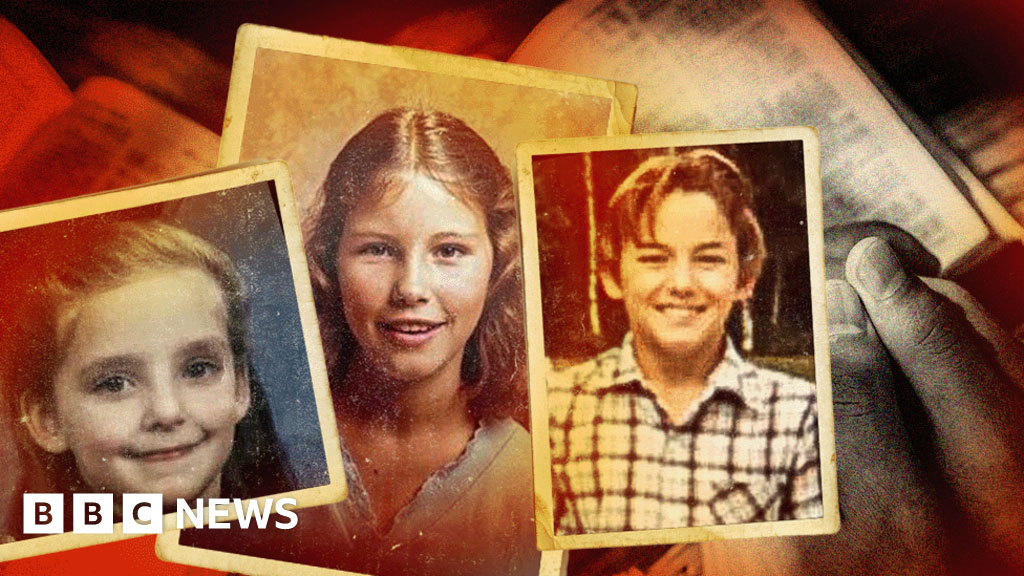
FBI Probe Continues as Ex‑Church Minister Who Confessed to Child Abuse Remains Free
An ex‑minister of a secretive Christian group who publicly admitted to child sexual abuse during a BBC interview remains free more than two years later, despite ongoing investigations by the Federal Bureau of Investigation (FBI) and renewed allegations from other victims. The man, Robert Corfield, once served as a minister in a shadowy church commonly known as The Truth or the Two by Twos — a global network of itinerant ministers with no official headquarters or widely recognised name. In early 2024, Corfield told the BBC that he had sexually abused a boy named Michael Havet for six years starting in the 1980s when Havet was 12 years old, in Saskatchewan, Canada.
Corfield’s admission was part of a larger wave of revelations about abuse in the Two by Twos community. His name was among more than 1,100 reported to a hotline set up to document cases of sexual abuse within the church. About a month after the BBC’s initial investigation, the FBI launched a probe into allegations of child sexual abuse within the group. Although Corfield spoke to FBI agents in late 2024 or early 2025, saying he “responded with the truth,” he has not been contacted by authorities since that visit and remains at liberty in the U.S. state of Montana. When asked if he fears arrest, Corfield acknowledged that “there is that possibility.”
READ ALSO:
- Presidency Dismisses El-Rufai’s Thallium Claim as Diversion From N432bn Probe
- Ghana Moves to Extradite Russian Man Over Secret Sex Video Scandal
- Residents Flee as Gunmen Launch Fresh Attack on Kwara Community
Authorities, including the Royal Canadian Mounted Police (RCMP), have also been involved. The RCMP confirmed it investigated historic sexual assaults that occurred in the 1980s and sent files to Crown prosecutors for assessment, while the Saskatchewan Ministry of Justice noted it does not comment on cases currently under investigation. A separate alleged victim, identified only as Edward, came forward in 2025 claiming he was sexually assaulted by Corfield in 1974 at age 11, well before Corfield’s abuse of Michael. Edward also described alleged grooming behaviours, adding to concerns about Corfield’s past conduct.
Corfield’s case is part of broader allegations of abuse in the Two by Twos community, which some survivors and investigators describe as insular and resistant to external scrutiny. Advocacy groups have reported hundreds of alleged historical abusers connected to the sect globally. In the United States, a former elder of the Two by Twos was sentenced to 120 years in prison for possessing child sexual abuse material, highlighting that criminal accountability is possible when prosecutions occur. Survivors and advocates have criticised the church leadership’s historical handling of abuse allegations, alleging that serious complaints were ignored or covered up. Former members say the group’s structure — with ministers often hosted in private homes and an emphasis on internal solutions — made it easier for abuse to go unreported for decades.
While investigators continue their work, Corfield’s freedom has drawn sharp criticism from survivors like Michael, who has expressed confusion and frustration at the slow pace of legal action. Advocates have urged authorities in both the United States and Canada to urgently pursue all leads, not only against individual perpetrators but also over potential institutional failures within the church. Support networks for survivors have also grown online and through advocacy organisations, offering counselling and community resources for victims of the alleged abuse. Despite these efforts, many survivors say justice remains elusive more than two years after the minister’s public confession.
FBI Probe Continues as Ex‑Church Minister Who Confessed to Child Abuse Remains Free
International
Trump Halts Minnesota Immigration Crackdown After Fatal Shootings, Protests

Trump Halts Minnesota Immigration Crackdown After Fatal Shootings, Protests
The Trump administration has officially halted Operation Metro Surge, a controversial immigration enforcement operation in Minnesota, following widespread protests, political backlash, and the deaths of two U.S. citizens. The decision was announced by Tom Homan, the U.S. “border czar,” who confirmed that President Donald Trump approved ending the monthslong crackdown.
Operation Metro Surge, launched in December 2025, focused on the Minneapolis–St. Paul metropolitan area, deploying nearly 3,000 federal immigration officers at its peak. The operation aimed to detain undocumented immigrants, which the Department of Homeland Security (DHS) described as targeting “criminal illegal aliens.” However, reports indicate that many detainees had no criminal records, including children and U.S. citizens, raising concerns about the operation’s scope and fairness.
- Army University Professor Dies in Boko Haram Captivity After Nearly One Year
- MURIC Calls Proposed US Sanctions on Nigerian Muslims ‘Lopsided’
- Supreme Court Affirms Muslim Students’ Right to Worship at Rivers State University
The crackdown drew intense public opposition after anti-ICE protesters Renée Good and Alex Pretti were fatally shot during separate incidents in Minneapolis. The shootings intensified calls for accountability and prompted local and national criticism of federal enforcement tactics.
In a statement, Homan said, “I have proposed and President Trump has concurred that this surge operation conclude.” He noted that a drawdown of federal personnel had already begun, with a smaller contingent remaining temporarily to transition operations and coordinate with local authorities.
During the operation, DHS reported over 4,000 arrests, though critics highlighted the disproportionate impact on communities and families, emphasizing the humanitarian and civil liberties concerns arising from the surge.
Minnesota officials, including Governor Tim Walz and Minneapolis Mayor Jacob Frey, welcomed the decision, calling the operation an overreach that harmed communities and strained trust between law enforcement and residents. Civil rights groups also praised the halt but urged comprehensive immigration reforms to prevent future abuses.
The end of Operation Metro Surge marks a significant development in the national debate over immigration enforcement, sanctuary policies, and federal authority, highlighting the challenge of balancing border security with human rights and community safety.
Trump Halts Minnesota Immigration Crackdown After Fatal Shootings, Protests
-

 Education3 days ago
Education3 days agoCheck Your Name: UNILORIN Releases Updated NELFUND Refund List for 2024/2025 Students
-

 News3 days ago
News3 days agoOsogbo Sons and Daughters Mark 5th Anniversary with Awards, Political Undertones
-

 News16 hours ago
News16 hours agoSaudi Arabia Confirms Sighting of Ramadan Crescent, Fasting Begins Wednesday
-

 metro2 days ago
metro2 days agoUS Freezes Assets of Eight Nigerians Over Boko Haram, ISIL, Cybercrime Links
-

 News3 days ago
News3 days agoAfenifere Calls for Immediate Take-Off of State Police as Terror Threats Rise in Yorubaland
-

 metro3 days ago
metro3 days agoArgungu Festival 2026 Highlights Peace, Stability, Economic Growth — Tinubu
-

 News12 hours ago
News12 hours agoRamadan Begins in Nigeria as Sultan Confirms Crescent Sighting
-

 metro2 days ago
metro2 days agoTerror in Lagos Traffic: Cutlass Gang Unleashes Mayhem on Mile 12–Ketu Road



